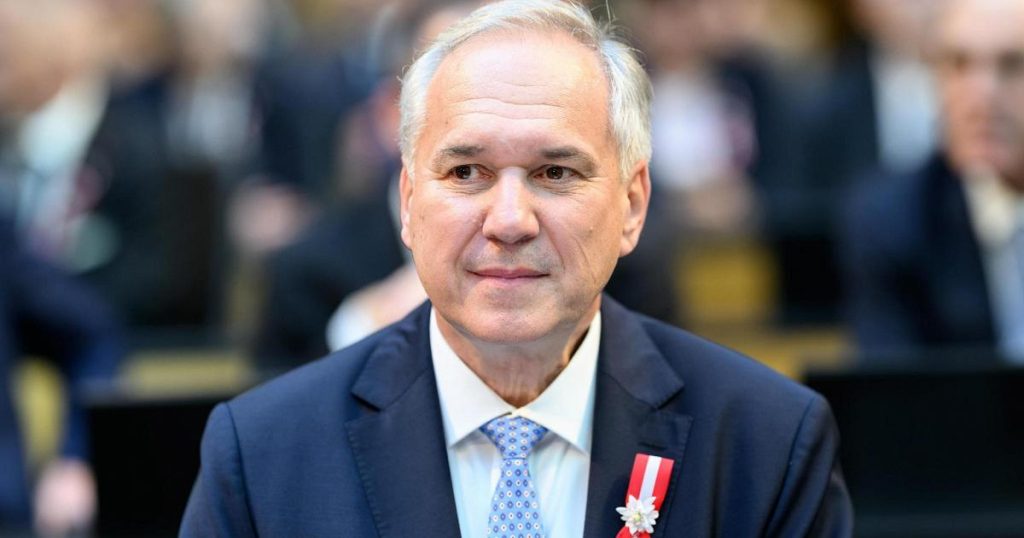The Austrian Parliament has elected an extreme right-wing politician, Walter Rosenkranz, as its president for the first time, causing outrage among the Jewish community. Rosenkranz, 62 years old, received 100 out of 162 votes in a secret ballot, announced by President Wolfgang Sobotka in Vienna. His election follows the historic victory of the Austrian Freedom Party (FPÖ) in the parliamentary elections at the end of September. Despite winning nearly a third of the votes, the FPÖ was unable to form a government. However, as the strongest party, they nominated Rosenkranz, a lawyer and former presidential candidate, as the Parliament’s president.
Before the vote, Chancellor Karl Nehammer stated that his conservative party is committed to respecting the customs and traditions of the Parliament. FPÖ leader Herbert Kickl praised Rosenkranz for his loyalty to democracy, the constitution, and the rule of law. However, Oskar Deutsch, the president of the IKG representing the Jewish community in Vienna, expressed his outrage in an open letter to Parliament members. He described Rosenkranz as a person from the “revisionist camp” who “pays true homage to Nazi criminals.” This nomination has sparked controversy and raised concerns about the direction the Austrian Parliament may take under extreme right-wing leadership.
Rosenkranz’s election highlights the growing influence of far-right parties in Austrian politics, as demonstrated by the FPÖ’s strong showing in the recent elections. With a significant portion of the population supporting these parties, their policies and ideologies are increasingly shaping the country’s political landscape. The nomination of Rosenkranz as Parliament president signals a shift towards more conservative and nationalist values in Austria, which is causing alarm among minority communities and human rights activists.
The rise of extreme right-wing politics in Austria has implications not only domestically but also on the international stage. As Austria’s Parliament president, Rosenkranz will play a key role in shaping the country’s policies and representing its interests abroad. Concerns about his controversial past and alleged ties to Nazi ideology have raised questions about Austria’s commitment to democratic values and human rights. The Jewish community’s strong opposition to Rosenkranz’s election underscores the need for vigilance and resistance against extremism in all its forms.
Despite the controversy surrounding his election, Rosenkranz has vowed to uphold the principles of democracy, the rule of law, and the constitution in his role as Parliament president. He has promised to work for the benefit of all citizens and to respect the diversity of opinions within the Parliament. As he assumes his new position, Rosenkranz faces the challenge of building bridges with various political factions and addressing concerns about his past associations. The coming months will be crucial in determining the direction of Austrian politics and the extent to which far-right ideologies will continue to shape the country’s future.
In conclusion, the election of Walter Rosenkranz as the first extreme right-wing president of the Austrian Parliament has ignited a debate about the implications of this decision for the country’s democratic values and social cohesion. The opposition from the Jewish community and human rights activists underscores the need to stand up against extremism and defend the principles of tolerance and equality. As Austria grapples with the rise of far-right politics, the coming years will be crucial in determining the path forward for the country and the extent to which it will uphold its commitment to democracy and human rights.


